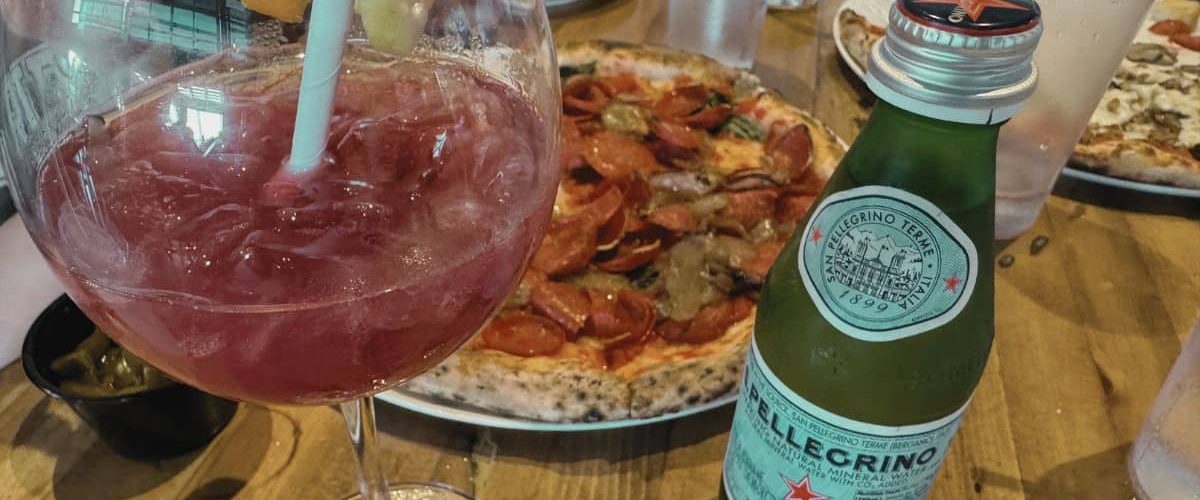I never drank a drop of alcohol while breastfeeding because I heard it’s terrible for your baby.” “I drank three mixed drinks a day while nursing…my LO is just fine.” ”I only drank beer while breastfeeding because it improves your milk supply”. Are you confused yet? New parents often receive conflicting advice from well-meaning friends, family, and online sources, making it challenging to know whom to trust. One common area of confusion and concern is the consumption of alcohol while breastfeeding. At Transitions Into Parenting (TIP), we aim to provide you with the best TIPS (Transitions Into Parenting Strategies), empower you, and give you the tools you need to make informed decisions. Here’s a guide on managing alcohol intake during breastfeeding.
T: Timing is everything
According to LactMed®, “Breastmilk alcohol levels closely parallel blood alcohol levels. The highest alcohol levels in milk occur 30 to 60 minutes after an alcoholic beverage. Still, food delays the time of peak milk alcohol levels,” decreasing the amount of alcohol that can pass into the milk.[1]
The American Academy of Pediatrics recommends waiting at least 2 hours after consuming each standard alcoholic drink before nursing to minimize alcohol concentration in breast milk.[2]
TIP: If possible, plan to drink alcohol right after a breastfeeding or pumping session to allow your body time to metabolize the alcohol content from the drink. Alcohol can pass into AND BACK OUT of breast milk. Giving yourself a few hours before the next feeding will give your body the time it needs to move and metabolize the alcohol.
Don’t drink alcohol on an empty stomach. Pair that wine with dinner!
I: Intake moderation
While the occasional mixed drink or beer is considered acceptable by most breastfeeding experts, frequent or heavy alcohol consumption can impact your baby’s health and your milk supply. La Leche League International states, “No harmful effects to babies have been found from drinking no more than one drink a day.[3]”
The more alcohol consumed, the longer it takes to clear the body. According to the CDC, “Alcohol from 1 drink can be detected in breast milk for about 2-3 hours, alcohol from 2 drinks for about 4-5 hours, and alcohol from 3 drinks for about 6-8 hours.[4]”
TIP: Limit yourself to one drink per day and ensure you have enough time for the alcohol to clear from your system before breastfeeding again. As your baby gets older you may begin to have some predictable windows of time when he/she sleeps longer. This can be helpful when you are out enjoying dinner and drinks with family and friends.
P: Pay attention to your baby’s reactions
Alcohol can affect babies’ milk intake and sleep patterns. LactMed notes, “Nursing after 1 or 2 drinks can decrease the infant’s milk intake by 20 to 23% and cause infant agitation and poor sleep patterns.[1] ”
TIP: Observe your baby’s behavior after you’ve consumed alcohol. If you notice any changes, it might be best to adjust your intake.
S: Stay informed and seek support
Managing alcohol and breastfeeding can be confusing. It’s important to stay informed with accurate information.
TIP: Consult with a lactation consultant and/or healthcare provider for personalized advice and support regarding alcohol consumption while breastfeeding.
Additional tips for managing alcohol intake
1. Age matters:
Newborns are more affected by alcohol due to their immature liver, as infants metabolize alcohol at about half the rate of adults until they are around three months old.
2. Hydration and nutrition:
Staying hydrated and maintaining a balanced diet can help your body process alcohol more effectively. You might prefer to stick to non-alcoholic drinks or alternate. New non-alcoholic options are hitting the shelves so we can enjoy the social element of “getting together for drinks” without feeling like we can’t participate. Use your favorite glass and garnishes and you might not even miss the alcohol.
3. Pumping and storage:
If you plan to drink alcohol, breastfeeding or pumping immediately beforehand will ensure your baby has a safe supply, and then waiting to feed again for about two-three hours (per drink) will help ensure that your baby gets very little alcohol from you.
– A mother may choose to express or pump milk after consuming alcohol to ease physical discomfort or adhere to her schedule.
– Expressing or pumping and then discarding milk after drinking alcohol does not reduce the amount of alcohol in the mother’s milk more quickly.
4. Find support in family and friends:
Ensure that your support network understands your approach to alcohol intake while breastfeeding. Communicate your plans to family and friends to create a supportive environment. If you are consuming alcohol, use your support network to help care for the baby. Never co-sleep with a baby after consuming alcohol. Safety first.
Final thoughts on alcohol and breastfeeding
At Transitions Into Parenting (TIP), our goal is to provide you with the best strategies for balancing your lifestyle choices with the needs of your baby. By following these TIPS (Timing, Intake Moderation, Pay Attention, Stay Informed), you can more confidently navigate breastfeeding while managing alcohol consumption. Remember, every mother and baby are unique, and what works for one may not work for another. Stay attuned to your baby’s needs, and seek professional advice when needed.
References:
1. Bethesda (MD). (2006, Updated April 15, 2024). Alcohol. National Institute of Child Health and Human Development. Drugs and Lactation Database (LactMed®. https://www.ncbi.nlm.nih.gov/sites/books/NBK501469/
2. Arthur I. Eidelman, MD; Richard J. Schanler, MD; Margreete Johnston, MD; Susan Landers, MD; Larry Noble, MD; Kinga Szucs, MD; Laura Viehmann, MD. (2012). Pediatrics (2012) 129 (3) e827–e841. SECTION ON BREASTFEEDING. https://doi.org/10.1542/peds.2011-3552
3. Breastfeeding Info: Drinking Alcohol and Breastfeeding. La Leche League International. (Reviewed and revised December 2020, with minor language changes March 2021). https://llli.org/breastfeeding-info/alcohol/#
4. Alcohol. Breastfeeding Special Circumstances. Centers for Disease Control and Prevention (CDC). (2024). https://www.cdc.gov/breastfeeding-special-circumstances/hcp/vaccine-medication-drugs/alcohol.html

